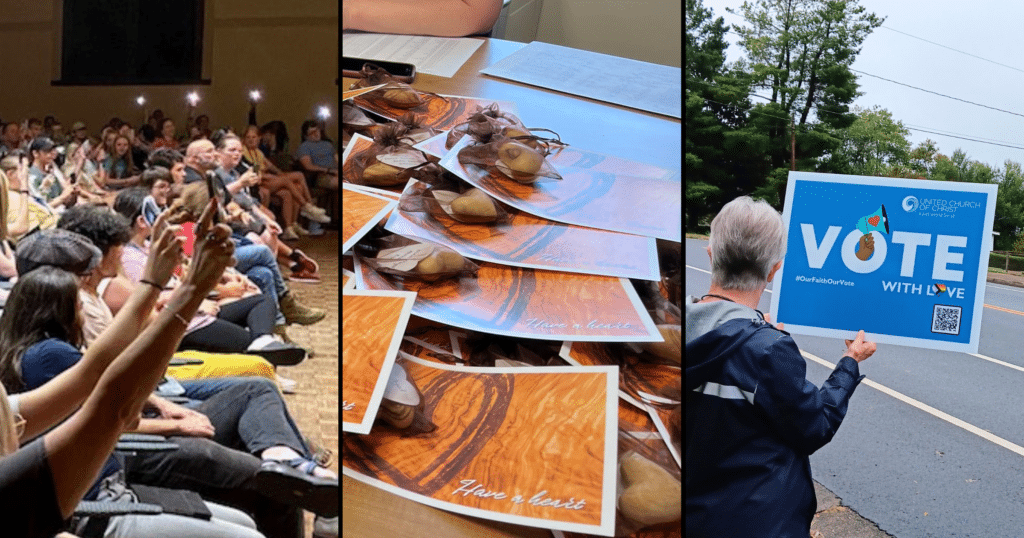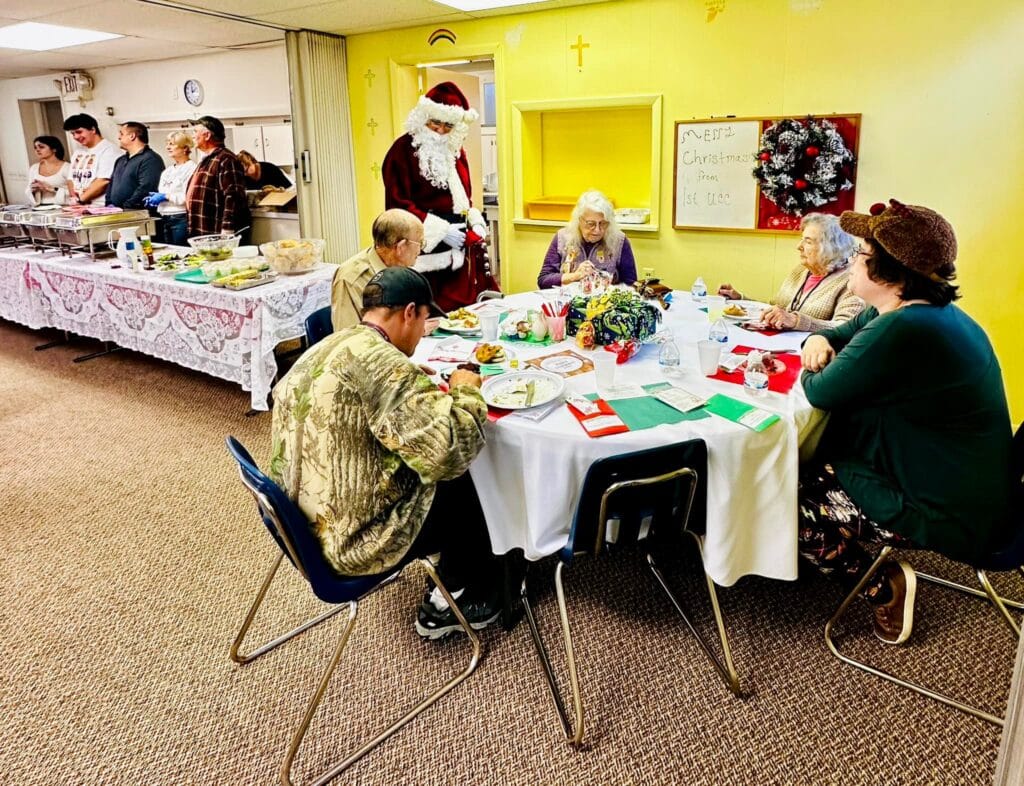UCC Coalition for LGBT Concerns changing name, advocating core mission
To strengthen the commitment to its Open and Affirming program, the United Church of Christ Coalition for LGBT Concerns will undergo a name change next year. However, that change won’t alter the Coalition’s core mission and identity as advocates for and with the lesbian, gay, bisexual, transgender and queer communities in the UCC. In fact, the name change will hopefully lift up the ONA movement as a broader justice issue extending beyond church congregations and into society.
The Coalition’s 12-person leadership team voted unanimously at its annual retreat in late April to rename the UCC Coalition for LGBT Concerns to the Open and Affirming Coalition of the United Church of Christ.
“We wanted to strengthen the Coalition’s identification with the Open and Affirming program, which continues to be the priority to which we devote most of our financial resources and staff time,” said Andy Lang, executive director of the Coalition. “We wanted to make this identification clear, and at the same time open up space in which UCC members can explore together the future of the ONA movement.”
In 1985, the General Synod of the UCC adopted a resolution calling on congregations to declare themselves “open and affirming.” In the almost 30 years since, the Open and Affirming (ONA) Program of the UCC Coalition for LGBT Concerns has worked to encourage congregations and other UCC settings to live out that call to welcome LGBT people as full participants in the life of the church.
The change to the new name will be phased in before General Synod 2015, which in late June next year, but Lang invites the wider church to begin using “ONA Coalition” or “Open and Affirming Coalition” in its conversations.
Ammon Ripple, vice president of the Coalition’s leadership team, believes the new name allows the Coalition to reframe the ONA mission as a broader work for justice.
“We do not only seek Open and Affirming congregations. We strive for open and affirming societies across the world as well,” he said.
“Instead of focusing specially on LGBT concerns and justice, we are working to include LGBT people in God’s expansive vision of justice,” Ripple said. “It’s our hope that by expanding the vision that all people in the church, straight and LGBT, will feel welcome in this community.”
The Coalition’s leadership team is sharing a letter on its website explaining the change. “We have begun to see that Open and Affirming is not just part of what we do at the UCC Coalition for LGBT Concerns,” they wrote. “Open and Affirming is who we are.”
The ONA Coalition has worked to equip UCC congregations to become witnesses for extravagant welcome, and helped the denomination reach milestones on the journey towards acceptance and justice for its LGBT and same-gender-loving members.
“We want to continue to remind our members that ONA covenants are a commitment to a broad vision of a church and a world in which everyone is wanted and needed, no one is excluded,” Lang said. “This means our work emphasizes, but is not limited to, the full inclusion of LGBTQ people in our church. And we want to build on the progress we’ve made in the past three years in deepening our partnerships with communities of color, with the Widening the Welcome movement, and especially with the national setting of the church.”
The ONA Coalition, founded in 1972, welcomed its first ONA church in 1986, and its 1,000th in 2012. To date, there are 1,150 ONA congregations in the UCC, representing almost 23 percent of the churches in the denomination.
The ONA Coalition has also seen a growth in the membership of ONA churches, in particular young heterosexual parents raised in other traditions who want their children to learn faith in an LGBT-inclusive church.
“They’re looking for the values that ONA represents,” Lang said
That growth correlates with recent research from the Public Religion Research Institute, with data that shows significant numbers of Millennials, people ages 18-34, who felt alienated from organized religion left their churches primarily over the perception that their teachings or behavior towards LGBT people were “negative.”
Lang estimates that 27 percent of the UCC membership belongs to an ONA church, and said that the Coalition hopes to have 30 percent of the denomination’s membership as part of an ONA church by General Synod 2015 — in time for the organization’s 30th anniversary.
“But 30 percent isn’t where we want to stop,” Lang said. “Over the next decade we’d like to be at 50 percent. Our ultimate goal is to be at 100 percent. Our perspective is that LGBT youth are growing up in [UCC] churches that are not ONA. We want every LGBT youth to be part of a church that offers a confident and well-informed welcome, and supports their relationships.”
Related News
Year in Review: Top news highlights of 2024
The United Church of Christ News team has spent each week of 2024 delivering stories that...
Read MoreNo more lonely little Christmases: Chasing away the blues now and into the New Year
With the loneliness epidemic in the U.S. continuing to affect every one in five people, many...
Read MoreUCC Annual Report video brings to life impactful ministries
Leaders of the United Church of Christ are thrilled to share the newly released 2024 Annual...
Read More

